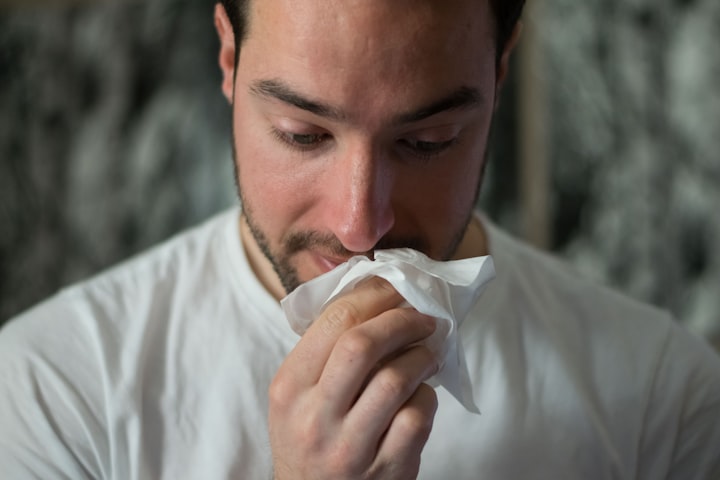What Causes Allergy?
Due to the dust and pollution in the environment, every other person seems to suffer from sneezing and throat problems.

Due to the dust and pollution in the environment, every other person seems to suffer from sneezing and throat problems. Certain seasons also lead to an increase in allergies. For example, in many areas, many people suffer from pollen allergies in spring. People are affected. However, the problem of allergy becomes more severe in winter and winter cold, cold also causes various diseases and fever.
Apart from this, substandard water and poor sewage conditions also lead to respiratory and skin allergies.
Definition of Allergy
Our immune system protects us from disease-causing bacteria and viruses. A strong immune response against any such substance, which is usually harmless to most people, is called an allergy.
That is, understand that allergies are caused by the weakness of the immune system.
Types of Allergies
One type of allergy is related to the respiratory and the other to the skin, which is triggered by touching certain substances in sensitive people. Respiratory allergy is also called pollen allergy, which is caused by wild mulberry in Islamabad. Also. In agricultural areas, sprays on crops and animals cause allergies.
Skin allergies cause itchiness on the body and the skin color gradually turns red. If not treated in time, the skin hardens like leather and takes the form of eczema.
Why do Allergies Occur?
Eating or putting something on your body, that your body doesn't accept, causes an allergy. Then the body feels itchy and uncomfortable.
People also suffer from allergies by eating various items such as peanuts, walnuts, almonds, cashews, eggs, cow's milk, and certain fish. Apart from this, complaints of allergic reactions to insect bites, medicines, and chemicals are also common.
Difference Between Allergy and Cold
In allergy, water comes from the eyes and nose, the nose is blocked and inflammation is felt but there is no fever, while in a cold, thick fluid is released than water and fever may also occur.
How are Food Allergies Caused?
Cases of food allergies have increased over the past 30 years. For example, in the United Kingdom, the rate of peanut allergy increased fivefold between 1995 and 2016. In a study conducted by King's College London. 1300 three-year-old children were made a part of the research. In the research, it was revealed that 2.5% of the children were suffering from peanut allergies.
Australia has the highest rate of food allergies. According to a study, nine percent of children under the age of one year are allergic to eggs and peanuts. This is why medical scientists say that children should be exposed to peanuts from a very young age. Nuts should be fed so that they start developing immunity against possible allergens from a young age and develop the habit of eating peanuts.
In a lab study conducted at King's College London, it has been reported that five-year-old children who started eating peanuts from the year of birth had an 80% reduction in peanut allergy. Some people are allergic to eggs, various vegetables, fruits, cow, goat, or chicken meat, etc. Once the cause of the allergy is known, it is better to avoid it.
Symptoms
Allergy symptoms can vary in severity from person to person. Changes in climate and lifestyle can affect the nature and severity of allergies. Whether it's a respiratory or food allergy, Symptoms include difficulty breathing, burning or itching of the eyes, swollen red eyes, coughing, going into shock or shock, wheezing, runny nose, reddened skin, rashes or rashes on the body, nose, mouth, throat. or skin rashes etc.
Most children suffer from allergies and their nose, eyes, throat, lungs or skin are more affected.
Precautions
Whether the allergy is temporary or chronic, there is no permanent cure, meaning that if you suffer from any type of allergy, it is likely to stay with you for life. If a vaccine is available, get vaccinated regularly. However, taking precautions can prevent allergies and the problems that arise due to them.






Comments
There are no comments for this story
Be the first to respond and start the conversation.